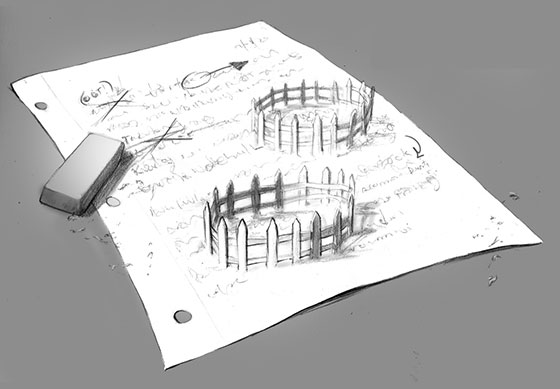
How do I find what I need to change?

Let’s suppose that you have already read When you dislike what you wrote, both Chapters I and II (When-You-Dislike-What-You-Wrote-Chapter-I, When-You-Dislike-What-You-Wrote-Chapter-II) and you are now willing to do a few things differently:
—not crumple papers when you feel frustrated;
—set writing aside when your head is boiling;
—listen for that encouraging signal.
But, even by taking all of these steps, you still feel you have a problem!
How do I find what I need to change?
The answer to this question is not as mysterious as you might think.
1) Look at your assignment and ask yourself, “Did I do what I was asked to do?” If you were assigned a one-page story about a summer holiday, you can look at your writing and ask yourself very simply : i) did I write a page? and ii) did I write about my summer holiday? If you didn’t quite write a page, consider how you might expand what you wrote. If your story wandered off the topic of summer holidays, possibly to the topic of how much you admire lemurs, you can fix that, too!
2) Read your writing and ask yourself, “Am I entertained when I read this piece of writing?” If you feel interested and entertained while reading your own writing, it is extremely likely that someone else will, too! And if there are a few places where the writing seems to sag, where your own interest seems to droop, consider what you could do to spruce up those spots.
3) Read your writing and ask yourself, “Does what I wrote make sense?” Very simply, can you understand your own writing? Is it clear?
4) Look at the words that you chose and ask yourself if those words sound good, feel good, and express what you really want to say. Be immensely choosy and selective where words are concerned. Words can be changed one at a time. New words transform writing, sometimes in a matter of seconds.
New idea: Try the four ideas above. Very often, they help to identify what needs to change.
And, there’s one more thing. Well before you begin the work of improving a story, be sure to search out the GOOD parts that really shouldn’t be changed. Underline or circle everything that you like. Think of those underlines and circles as fences that an eraser MUST NOT CROSS. Even pieces as small as a single good sentence should be protected and preserved.







